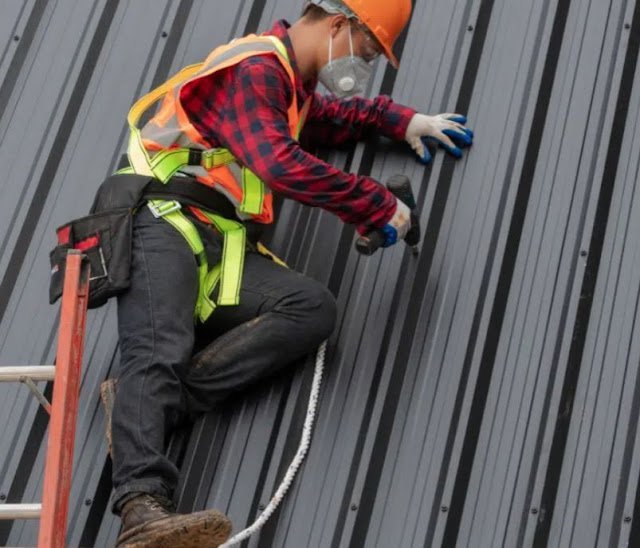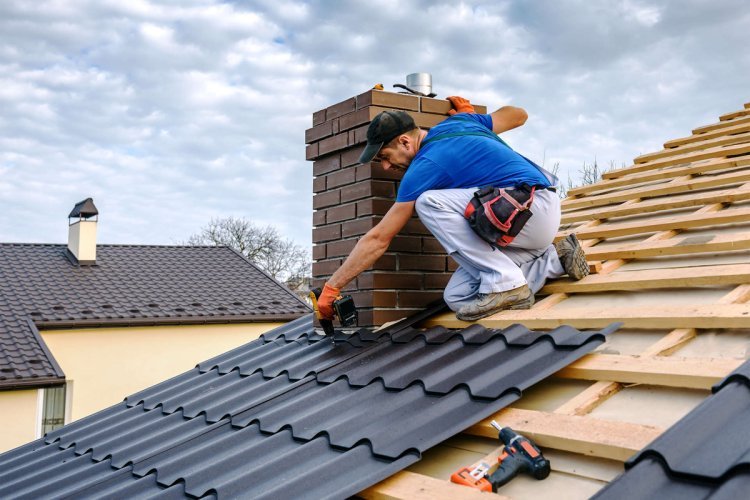Why You Should Get a Roof Inspection
Learn the basics of residential roofing in this easy guide. Find out why roof inspections are important, when to repair or replace your roof, and how to fix common issues.

Why You Should Get a Roof Inspection
Your roof is one of the most important parts of your home, yet it's often one of the most overlooked. Whether you’re a new homeowner or you've lived in your house for years, understanding the basics of residential roofing is key to keeping your home safe and secure. In this guide, we’ll cover everything you need to know about roof inspections, repairs, and replacements, so you can keep your roof in great shape.
1. Why You Should Get a Roof Inspection
Routine roof inspections are essential for catching potential problems early. Many homeowners don't realize that a minor issue, like a small leak, can quickly turn into a major repair if left unchecked. By scheduling regular inspections, you’ll know the state of your roof and can address any problems before they get out of hand.
2. When to Repair or Replace Your Roof
It can be tricky to know whether your roof needs a simple fix or a full replacement. A roof inspection can help you decide. If the damage is minor, like a few missing shingles, a repair might be all you need. However, if your roof is old or severely damaged, a roof replacement could be the smarter choice in the long run.
3. How Roof Inspections Keep Your Home Safe
Your roof shields your home from weather and the elements, but how do you protect the roof? That’s where roof inspections come in. Inspections help identify leaks, weak spots, and other issues that could lead to bigger problems, like water damage or structural issues. By catching these early, you can ensure your home stays safe and dry.
4. Common Roof Problems and How to Solve Them
Some of the most common residential roofing problems include:
- Leaks
- Missing or damaged shingles
- Cracked flashing
- Poor ventilation
Most of these issues can be fixed with simple repairs, but again, an inspection will help determine the best course of action. Always address these problems early to avoid expensive damage down the road.
5. Roof Replacement Basics You Should Know
If your roof is older or has seen better days, a roof replacement might be necessary. The process involves removing the old roof, inspecting the decking underneath, and installing new roofing materials. It can seem like a big job, but a well-done roof replacement can last 20-30 years or more, making it a solid investment in your home’s future.
6. Simple Tips to Keep Your Roof in Good Shape
Here are a few easy tips to extend the life of your residential roofing:
- Clean your gutters regularly to prevent water damage.
- Trim any overhanging branches to avoid debris buildup.
- Keep an eye on your roof after storms for signs of damage.
- Schedule regular roof inspections to catch problems early.
These simple steps can save you money in the long run and help your roof last longer.
7. Choosing the Best Roofing Material for Your Home
When it’s time for a roof replacement, choosing the right material is key. Some popular options for residential roofing include:
- Asphalt shingles (affordable and durable)
- Metal roofing (long-lasting and energy-efficient)
- Tile roofing (stylish and durable, but heavier)
Each material has its pros and cons, so consider your budget, climate, and the style of your home when making your decision.
8. Why Ignoring Roof Damage Can Be Expensive
It’s easy to ignore minor roof issues, but that can lead to costly repairs later. A small leak can cause water damage, mold growth, and even structural problems if left unchecked. Regular roof inspections can help prevent these expensive surprises by catching issues early.
9. What Happens During a Roof Inspection?
During a roof inspection, a professional will check for signs of damage, such as:
- Missing or damaged shingles
- Leaks or water stains
- Flashing issues around vents and chimneys
- Signs of wear and tear
They’ll also look for any potential weak points that could b

ecome problems in the future. After the inspection, you'll get a report on the state of your roof and recommendations for any repairs or a possible roof replacement.
10. How to Find the Best Roof Repair Service Near You
Finding a reliable roofing contractor doesn’t have to be hard. Look for a company with good reviews, proper licensing, and experience with residential roofing. Ask for references and make sure they offer a warranty on their work. It’s always a good idea to get multiple quotes so you can compare services and prices.
Conclusion
Your roof plays a crucial role in protecting your home. Regular roof inspections, timely repairs, and smart decisions about roof replacement can help you avoid costly damage and extend the life of your roof. By staying proactive and taking care of your roof, you’re also taking care of your home’s future. So don’t wait—schedule your next roof inspection today!
What's Your Reaction?















